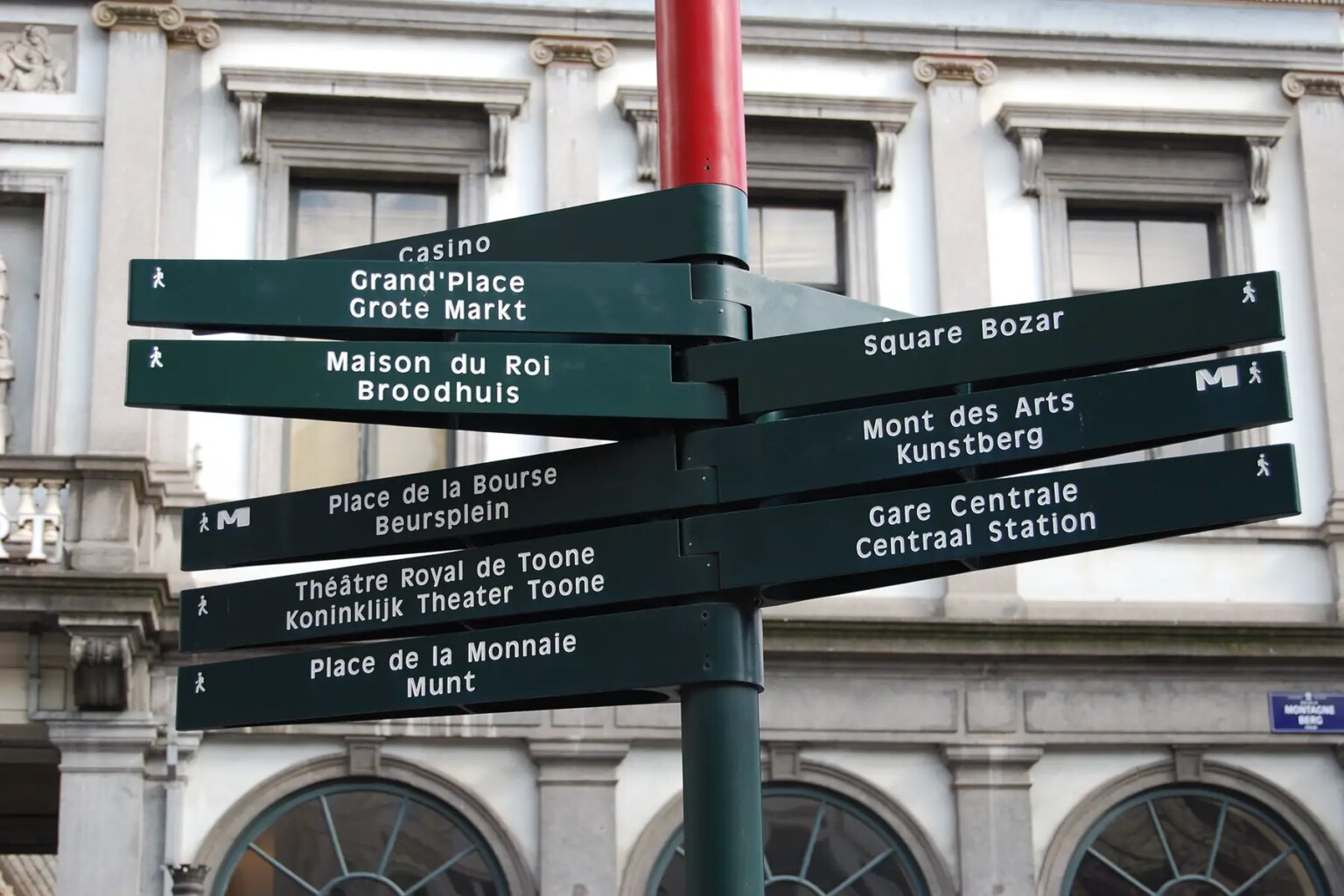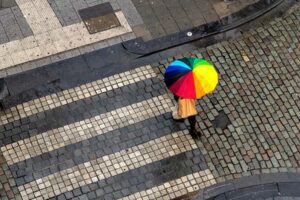If you’re moving to Belgium, you’ll probably want to brush up on the local language. However, that’s easier said than done in this cozy little country. Indeed, despite its size, Belgium has not one, but three official languages: Dutch, French, and German. In addition, there are also a few others thrown in for good measure.
But while this might sound daunting for those arriving from countries with just one official language, fear not. There are plenty of language schools in the country to help you on your way to fluency. However, even understanding how these languages interact with each other is a great first step. With that in mind, this guide includes information on the following:
Babbel
Unsure what you've just been called in the supermarket? You might want to brush up on your French or Dutch. Thankfully, with Babbel you can follow a range of professionally-made courses from the comfort of your own phone. Whether you're just starting out or a cunning linguist, Babbel has the right French and Dutch course for you.
What languages are spoken in Belgium?
If you’re planning a new life in Belgium, it’s probably a good idea to train your ears for what’s to come. There are three principal languages in Belgium: Dutch, French, and German. There are also several lesser-known languages and dialects spoken in Belgium.
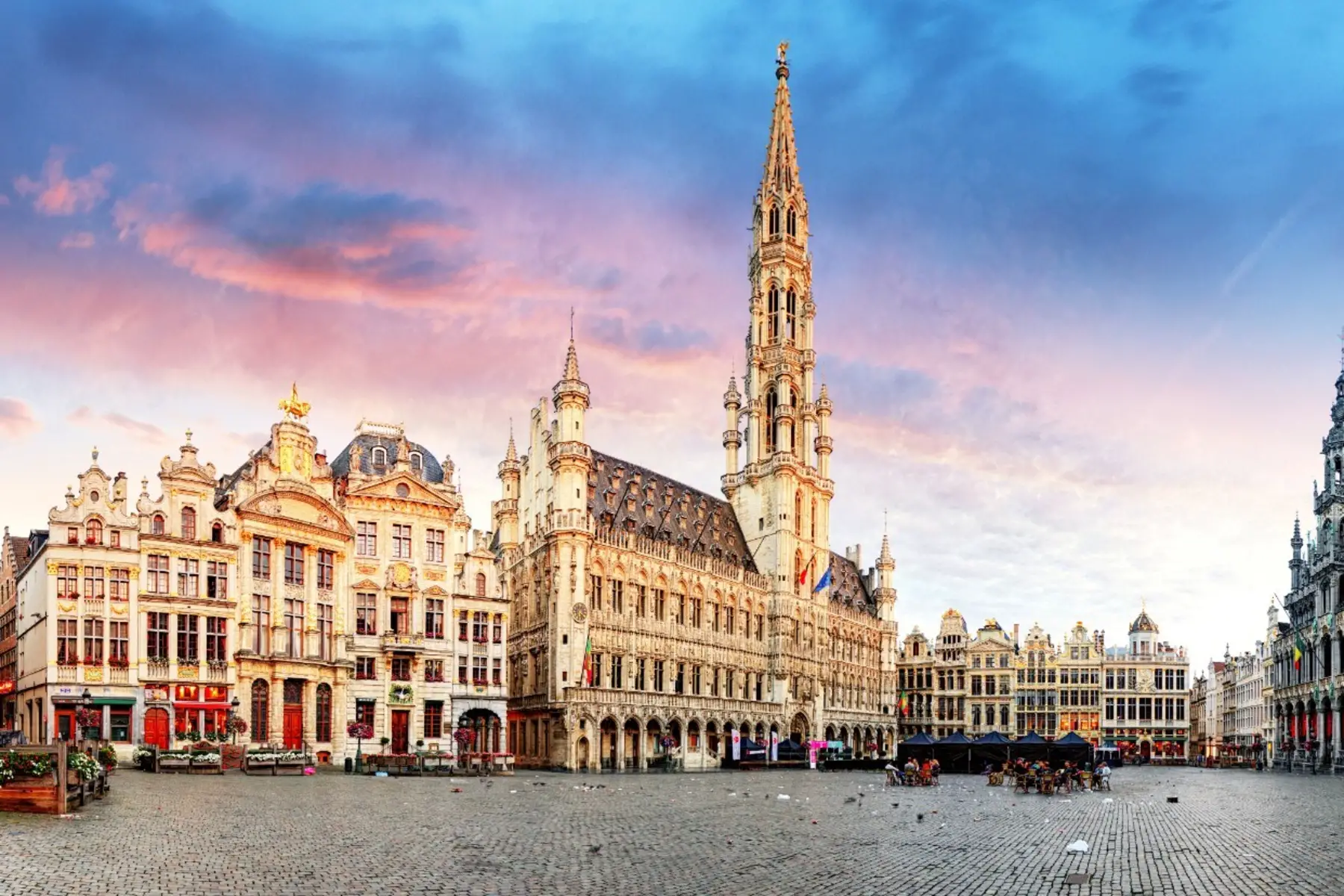
Depending upon where you choose to live in Belgium, you may only ever hear one of these languages on the street or in your local supermarket. However, you may also hear all three (and more). Once you become more confident with your languages, you may even find yourself happily switching between them during your days. It all adds to the fascination and cultural richness of this curious nation.
Let’s have a deeper look at these languages:
Dutch
The most commonly spoken language in Belgium is Dutch, with around 60% of the entire population identifying as Dutch speakers, equating to approximately 6.5 million. The vast majority of these Dutch speakers live in Flanders, the region to the north of the country. Flanders borders the Netherlands to the north and is home to cities such as Antwerp and Ghent.
Historically, the Dutch spoken in Belgium has been called Flemish (Vlaams). However, calling it Flemish is discouraged these days, because, while it’s technically not incorrect to say they’re speaking Flemish, Flemish isn’t officially a language. It’s even written into the constitution that Belgians speak Dutch. Nonetheless, many people still refer casually to it as Flemish, so you’ll probably see and hear it mentioned a lot. This is another quirk in the story of Belgium and its languages.
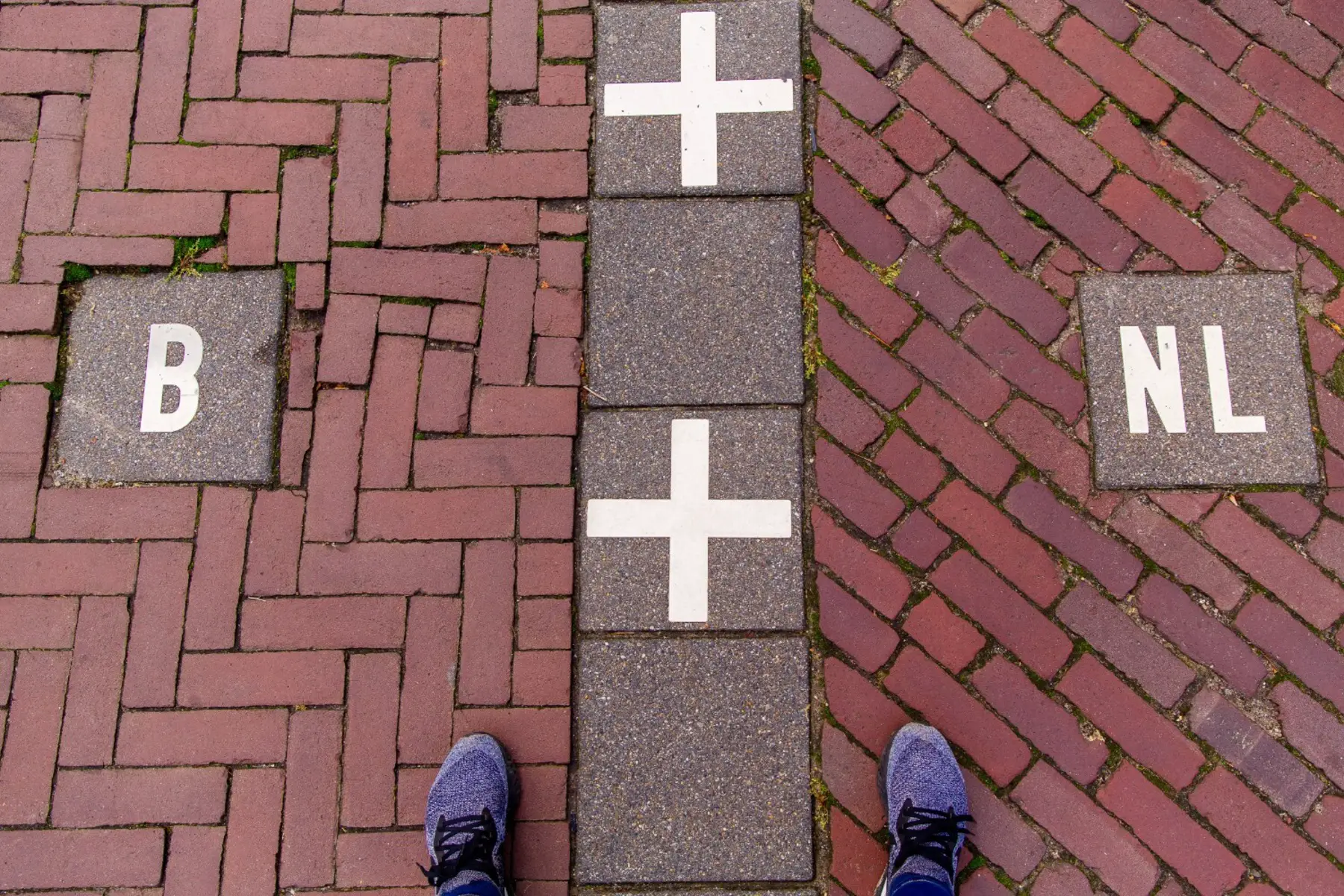
Although it’s similar to the Dutch spoken in the Netherlands, the Belgian Dutch accent is different and some of the vocabulary and idioms are unique to Belgium. Despite the region’s proximity to the Netherlands, the difference between the languages is bigger than British and American English, for example. However, the Dutch (and people who studied Dutch) can still easily understand Belgian Dutch.
Despite being surrounded by Flanders, the capital Brussels actually forms its own region and is officially bilingual. However, in practice, the number of people who can speak both French and Dutch in the city is dwindling. Indeed, the majority of Brussels residents speak French, so expect to hear plenty of je ne sais quoi on the streets.
French
The second most common language in Belgium (in terms of numbers) is French. About 40% of Belgians speak it today – roughly 4.5 million people. As well as being the predominant language in the capital, its also spoken in the region of Wallonia, to the south of Belgium. This region borders France, to the south, and is home to cities including Liege and Charleroi.
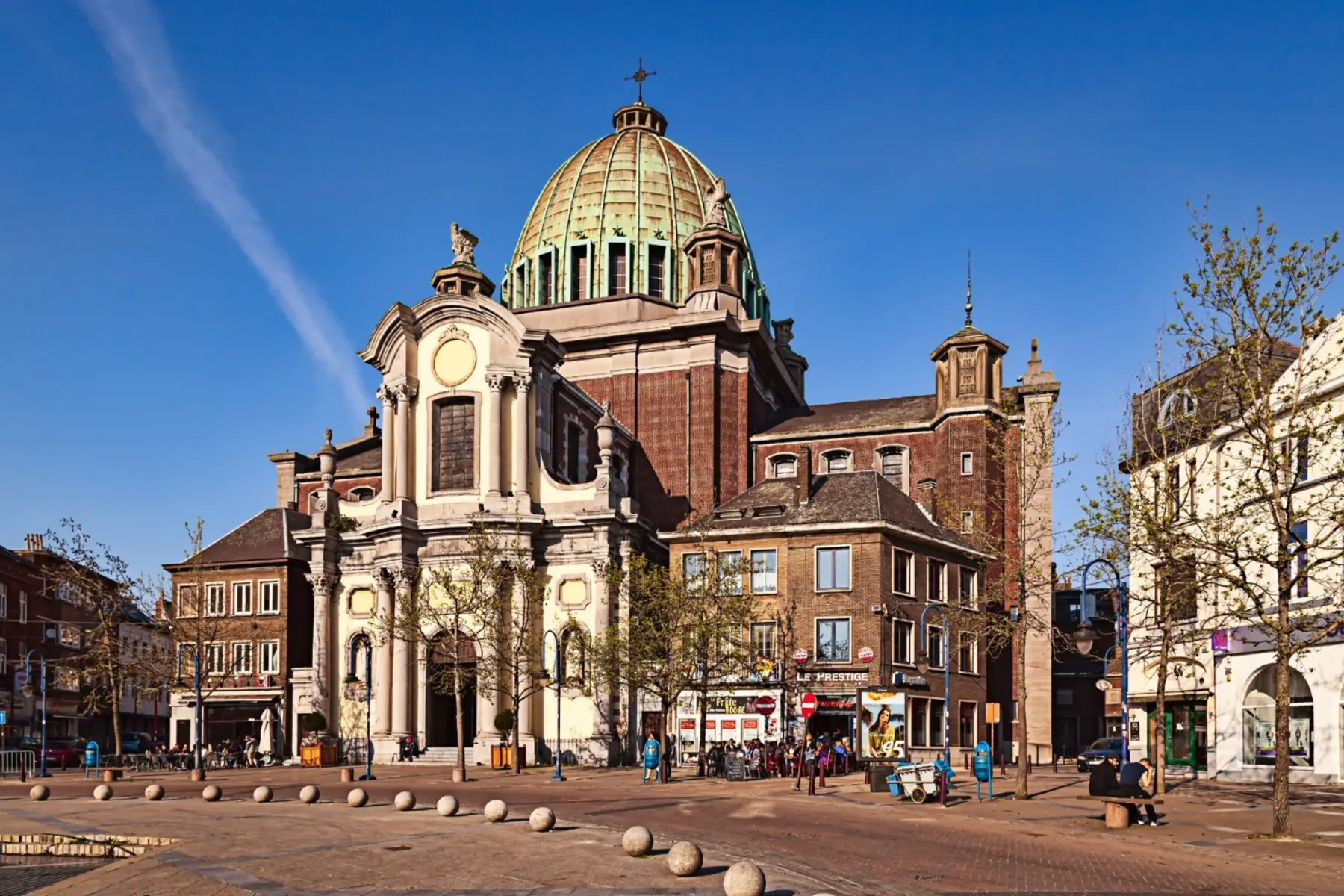
Wallonia may sound like a name of a mythical place an eligible prince comes from in a Hallmark Christmas movie, but it’s real. Although the pronunciation is different, French speakers from France will be able to understand Walloons’ accents and vocabulary, and vice-versa. That means, if you’re already a fluent French speaker, you should have little problem being understood.
German
Just 1% of people in Belgium speak German, around 75,000 people. Most of them live in Liege in the east, bordering Germany. This area only became part of Belgium after the First World War. So the German spoken here today is basically the same as it is in Germany.
There has always been a small number of German speakers in what is now known as Belgium. However, the French-speaking ruling class regularly attempted to stamp it out as they considered it an ‘improper’ language.
Luxembourgish and Limburgish
Finally, we have Luxembourgish and Limburgish. While these aren’t official languages in Belgium, they are still classed as languages rather than dialects. They aren’t widely spoken, but you may come across them, depending on where you live in the country.
Luxembourgish is spoken in the Arelerland area of the Walloon province called Luxembourg. This is rather confusingly located next to the country of Luxembourg.
Limburgish is found, unsurprisingly, in the Limburg provinces. One of these is located in the northeast of Belgium, the other is over the border in the southeast of the Netherlands.
Other minority languages
In terms of minority languages, around 18,000 Orthodox Jews living predominantly in the port city of Antwerp speak Yiddish.
Around 10,000 Romani in Belgium speak Sinte Romani.
Where Belgian languages are spoken worldwide
Learning any of Belgium’s three languages will open several linguistic doors for you throughout the world. Indeed, you’ll be able to converse with some 23 million native Dutch speakers globally; a whopping 321 million French speakers, and between 76.5 million and 130 million native German speakers (estimates vary). The numbers are almost twice as high if you include the number of people who are fluent in these languages even if it’s not their mother tongue.
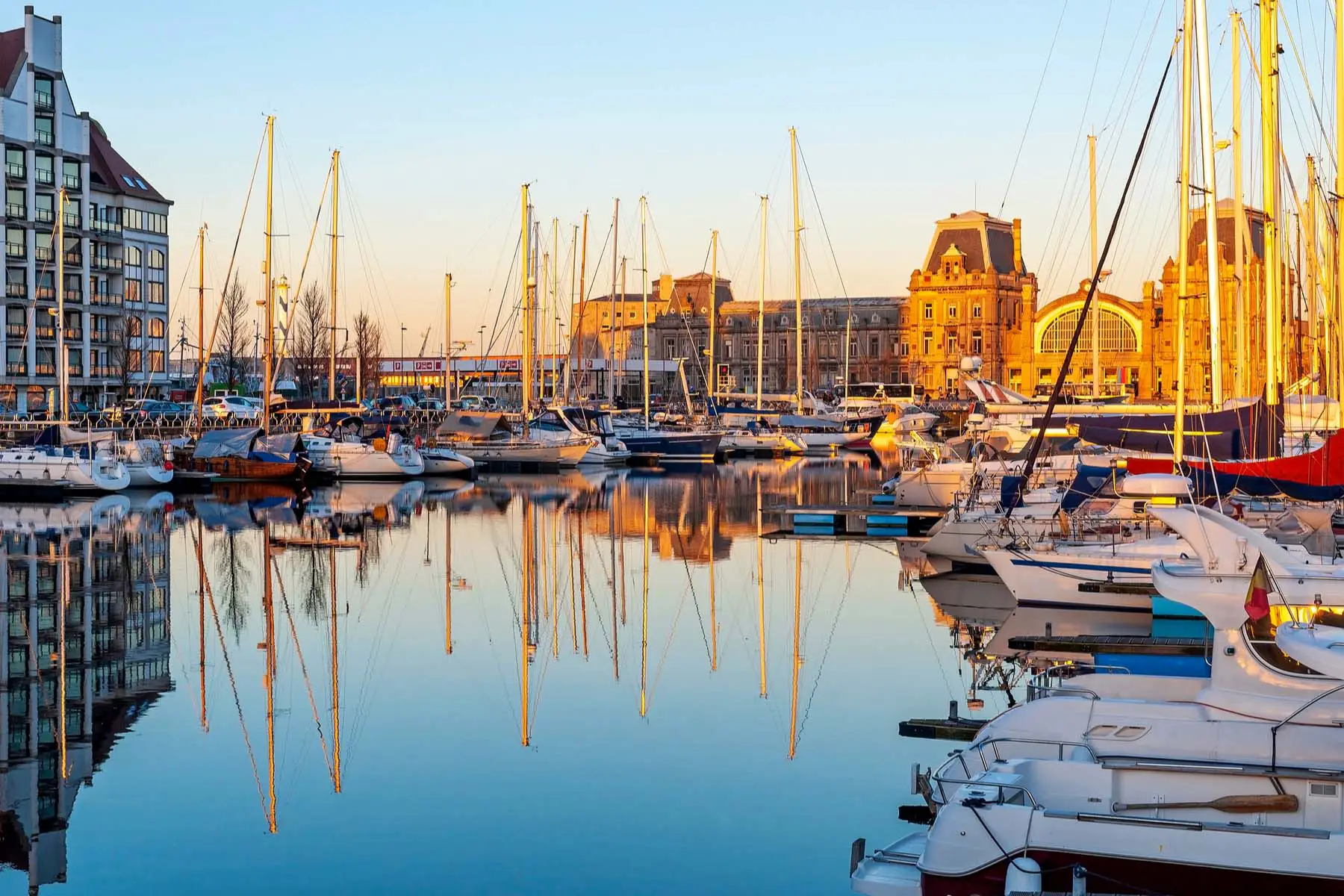
Other than being able to flex your language skills in Belgium, you’ll also be able to chat with the locals in the Netherlands, France, or Germany. Furthermore, there are a number of other countries around the globe that speak these languages. For example, Suriname and several Caribbean islands including Curacao and St Maarten speak Dutch. You can speak French in many parts of West Africa, Oceania, Canada, Luxembourg, and Switzerland as well as in Haiti and French Polynesia to name but a few. You’ll be able to practice your German in Austria, Luxembourg, Switzerland, and Liechtenstein, amongst others.
The history of Belgium through its languages
As you might expect from a country as linguistically confusing as Belgium, language plays a big part in Belgian history.
Revolution and the formation of the Belgian state
In short, the area now known as Belgium used to be several different regions and territories that made up the southern parts of the Kingdom of the Netherlands. These areas largely spoke a mixture of French and Dutch (Flemish), alongside other languages and dialects.
However, when the Dutch king, William I, sought to unify the Kingdom of the Netherlands, he attempted to do so under Protestant ideals and the Dutch language. This caused great consternation within the South’s largely Catholic communities and, in particular, the French-speaking elites. It wasn’t long before the smell of revolution was in the air.
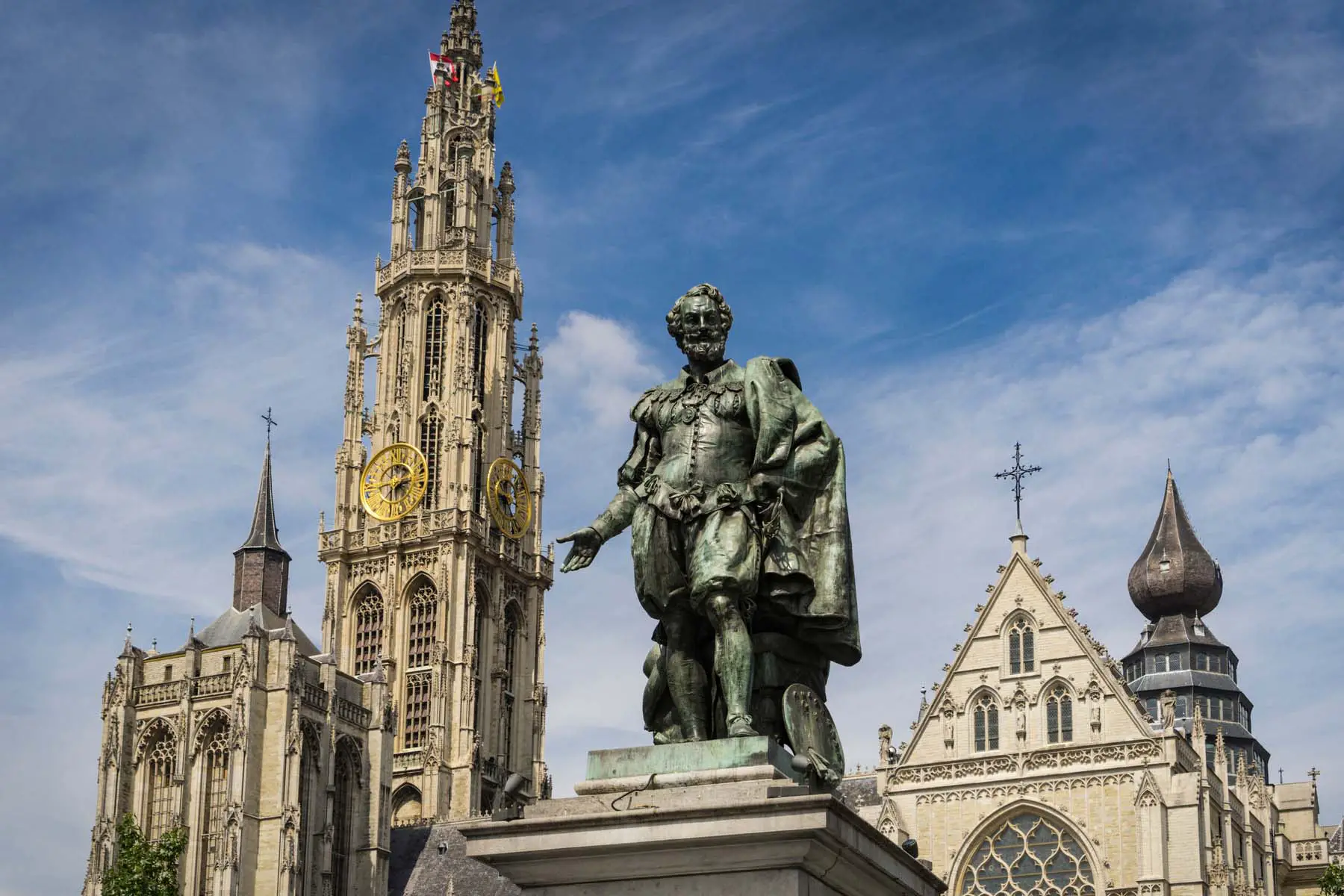
The Belgian Revolution blossomed in the streets of Brussels in August 1830, first among the liberal bourgeoisie and then within the wider population. Up north, King William waited for the trouble to blow over, but it didn’t. A provisional government declared Belgian independence in October 1830. Following interventions from France and Great Britain to stop further military action, Belgium was founded.
French institutional dominance
During the foundation of Belgium, the use of a single language was seen as a key to the future success of the Belgian state. However, the new constitution was drawn up by French-speaking elites, and French became the official language of the new country. This was despite the majority of citizens in the country speaking Dutch.
In newly-formed Belgium, all administrative and military roles were given to French speakers. French authority was consolidated by the growing economic dominance of the industrial south. The ruling classes in Brussels assumed this would mean everybody would learn French. They argued that Flemish, somewhere between Dutch and a dialect, wasn’t of any merit.

However, when the Flemish speakers saw themselves frozen out from positions of power and the upper classes, they clung to their languages and cultures even more. Flemish cultural identity grew, alongside a movement for the Flemish language to have equal footing with French in official circles.
Reform and equality
Finally, in the 1920s and 1930s, reform came. Dutch became the official language of government, education, and the judiciary in Flanders, Antwerp, Limburg, and east Brabant, while French remained the lingua franca in Wallonia. Brussels, the capital, officially became bilingual.
Furthermore, although the 1898 Equality Law made French and Dutch languages of equal status in Belgium, it wasn’t until 1967 that a Dutch version of the Constitution was passed, by which time French was firmly established as the language of power.
Belgian languages today
The historical tensions over languages in Belgium are still felt today. Indeed, the communities remain divided by language, and even in recent times, the tensions between French and Dutch speakers in Belgium have brought the Government to a standstill.
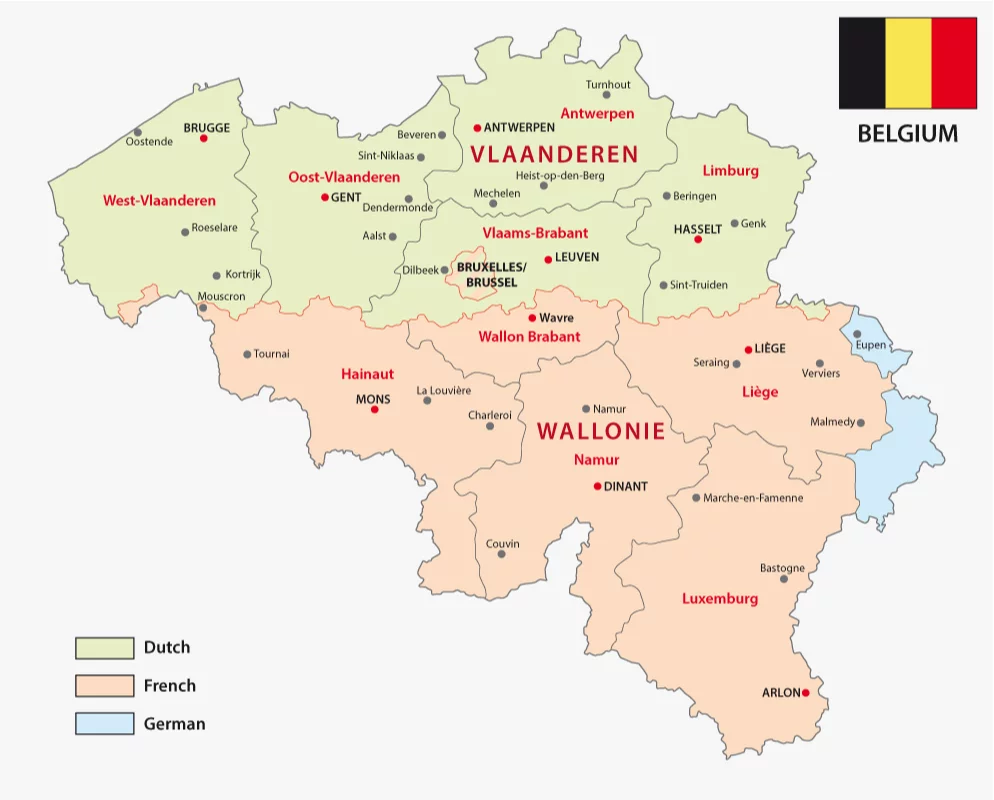
Even today, French still retains a certain amount of prestige as the language spoken by most of the biggest movers and shakers in the capital, such as policy-makers, diplomats, etc. So bear in mind if you’re going to be working in Brussels that you’ll need French at a very minimum.
Language origins
French, the language most commonly spoken in Brussels and the south, is a Romance language of the Indo-European family. Dutch is a West Germanic language, also part of the same broader family. And of course, German is officially classed as a West Germanic language, too.
Belgian dialects
There are oodles of dialects in Belgium. Under the Romance branch, there is Walloon, Picard, Champenois, and Lorrain. Indeed, most of the French-speaking areas today were previously Walloon-speaking areas.
The word ‘Walloon’ comes from the name of a Romanised Celtic tribe, the Wala. They lived in southern Belgium and developed their own kind of French – a collection of regional dialects. Today, only some of the older generation still use Walloon. However, a few Walloon words pepper the French spoken in Wallonia. For instance, some say ‘les canadas‘ rather than ‘pomme de terres‘ for ‘potatoes’.
The Germanic dialects in Belgium are West Flemish, East Flemish, Brabantian, Low Dietsch, and Ripuarian.
Pronunciation/phonology and grammar in Belgium
Belgium is unique not just in terms of its hotch-potch of languages but also when it comes to accents and grammar.
But one thing that is standard is the alphabet. The French and Dutch alphabets use all 26 letters of the Latin alphabet. German uses all 26, but also a ligature plus three umlauts.
Belgian French
The Belgian speak French with a similar accent to the French, although French speakers in Belgium have a slightly more nasal accent than their French counterparts. They also pronounce a couple of things differently, such as where the French pronounce ‘wagon’ with a ‘v’ sound, the Belgians pronounce the ‘w’. They also sometimes emphasize the ‘o’ sound where the French do not, such as in the name ‘Louis’.
Belgian Dutch
It’d be impossible for a native speaker not to notice the difference between how someone from the Netherlands speaks and how someone from Belgium talks. Belgian Dutch-speakers speak with a softer accent, whereas the Dutch go hard on their i’s and u’s, particularly the further north you go.
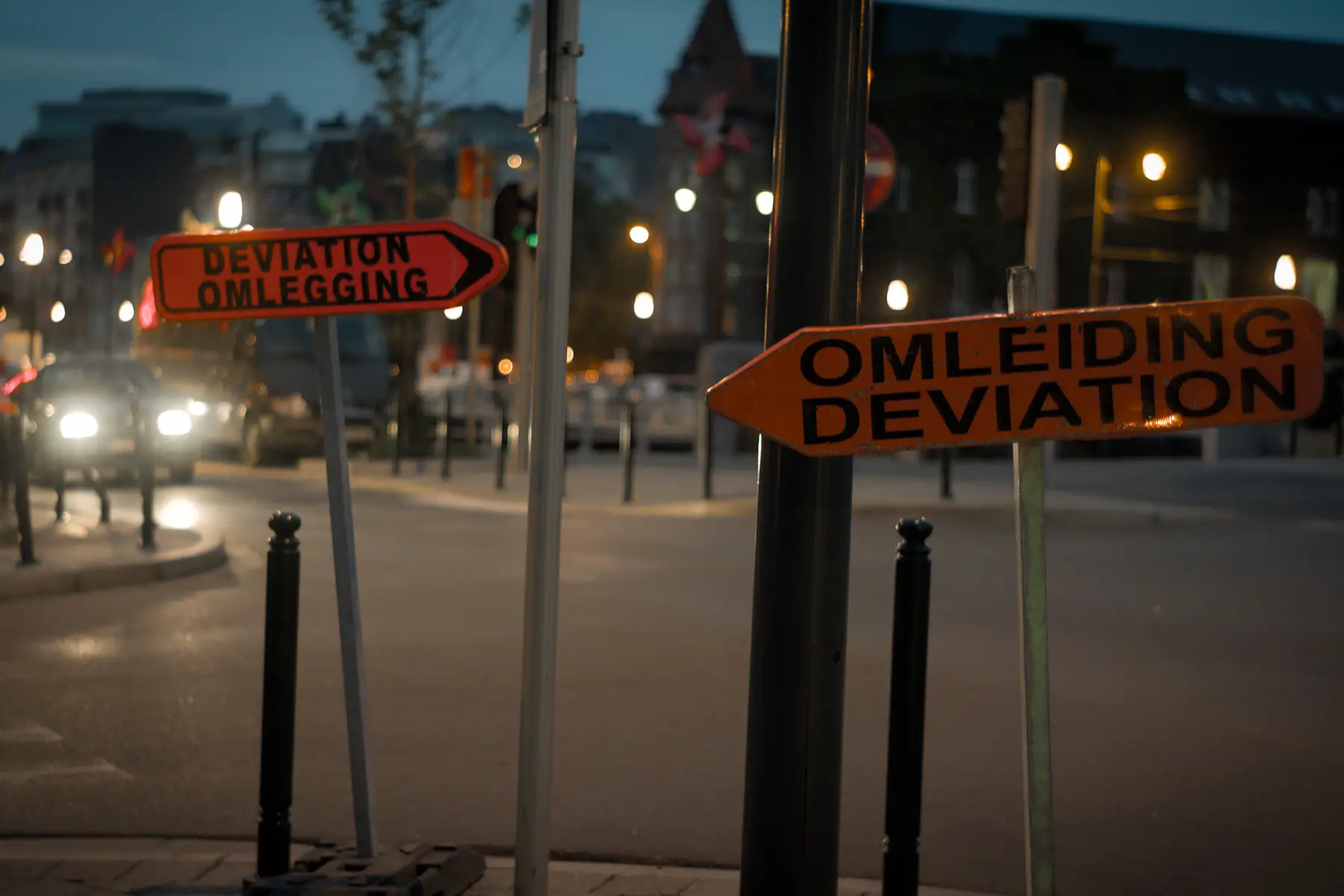
The syntax can sometimes be different, too. For example, the Dutch say things like ‘vast en zecker‘ and ‘flora en forna‘ but Belgian Dutch speakers flip it around and say ‘zecker en vast‘ and ‘forna en flora‘. Find out more with our article on the Dutch language.
Belgian German
By contrast, the German speakers in Belgium talk with basically the same accent as many Germans. This is largely due to the fact the German-speaking part only became part of Belgium 100 years ago. That means it didn’t have the extra decades that the Dutch and French speakers had to branch off with their own idioms and accents. Find out more with our article on the German language.
Interesting facts about Belgium’s languages
With its many languages, Belgium needs several public broadcasters to cater to speakers of all residents. It also needs translators in places such as parliament. That’s right, not even all Belgians know all three languages officially spoken in Belgium. It all adds to the uniqueness of Belgian culture. And another advantage is you’ll be able to perfect your skills by tuning into Dutch, French, and German TV and radio stations in Belgium.
- French was the only language used by Belgium’s public authorities until as recently as the late 20th century.
- Belgian politicians can choose to speak in any of the three languages and Parliament provides interpretation.
- The Flanders region is the most multilingual part of Belgium.
- 59% of Flemings (mostly Dutch native speakers) know French and 53% know English
- But only 19% of Walloons (mostly native French speakers) know Dutch and 16% know English.
- Rather like in Paris, you need to start speaking in at least basic French in Brussels if you’re attempting to speak to/get help from anyone.
- You should never address anyone in the wrong language of the region – it won’t go down well. So don’t try your Dutch out in the French part, etc.
Learning languages in Belgium
As we’re sure you agree by now, learning at least one other language in Belgium is a must. Fortunately, there are all kinds of online courses available for learning French, Dutch, and German. Some offer a wide range of dedicated lessons, while other online learning platforms offer 1-to-1 tuition. These platforms include:
In addition to this, there are also a number of apps you can download to start your language journey. These include:

But if you prefer in-person learning, the good news is there are heaps of language schools in Belgium. The advantage of in-person learning is your teacher can help you improve your accent and answer any questions you have. You’ll also have opportunities to practice with fellow students. To help you out, read our handy guide to language schools in Belgium.
English isn’t widely spoken in Belgium. This means you won’t be able to just wing it with a few foreign phrases, a bit of ‘Franglais’, and some dramatic hand gestures. You definitely need to learn one or more of the three main languages. And knowing more than one of them will come in handy, particularly if you want to travel around the country. After all, exploring a country is one of the best ways of getting to know it.
Useful resources
- How Language Shaped Belgium – a deep-dive into a complex issue
- The Endless Language Dispute – Belgium’s language dispute, explained
- Fleming and Walloon – culture and linguistics
- The Brussels Times – News in English
- VRT NWS – More news; switch between languages to practice your French, German and Dutch
